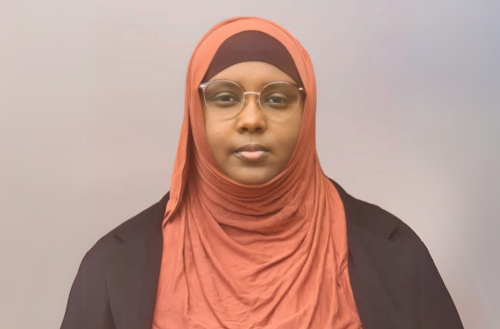Insights from My First Australian Governance Summit

Fathia Tayib, a 2024 graduate of The Observership Program who completed her 12-month placement with Life Without Barriers, offers a fresh perspective on Australia’s premier governance event. Her reflections highlight the Summit’s key discussions on AI ethics, board diversity, and cultural responsibility while emphasising the importance of alternative pathways to directorship for emerging leaders.
As a 2024 graduate of The Observership Program who spent 12 months with Life Without Barriers, I was excited to attend my first Australian Governance Summit in Sydney this March to build on my board experience and explore what’s on the horizon for directors.
John Mullen AM, Chair of Qantas, Brambles, and Treasury Wine Estates, kicked things off with a reminder that AI operates on logic, not human values – we shouldn’t blindly trust AI-informed decision-making. His practical advice stuck with me: you don’t need to know everything, just ensure you trust management’s integrity and have confidence in the organisation’s systems. I appreciated his warning signs of bad governance: all-powerful CEOs, ineffective chairs, toxic relationships, and founders who’ve overstayed.
Michele Flournoy’s session on geopolitical risk was eye-opening. We’re shifting from a rules-based order to a world with three competing powers, and Australian boards need to build baseline risk assessments by mapping vulnerabilities and protecting assets in these uncertain times.
The cybersecurity incident exercise had us dealing with a ransomware attack. As a privacy professional, I found myself thinking, “Why on earth did the board take so long to report this to regulators?!” It drove home that communication is crucial during crises, along with having manual backup systems when technology fails.
I really enjoyed the AI panel with Stela Solar, Ng Kuo Pin and Tim Trumper. They described AI agents as “digital limbs for humans” while raising concerns about whether our capacity for logical thinking might decline with AI assistance – much like how we now rely on Google Maps instead of finding our way with physical directories.
ASIC Chair Joe Longo highlighted the high expectations Australia has for board directors, with regulatory risks being top concerns. I was struck by his stat that only 7% of Australian board directors have a tech background – we clearly need more diverse expertise in our boardrooms.
The future-fit boards session really resonated with me. The speakers discussed embedding Indigenous perspectives into corporate decision-making (not just symbolically) and the importance of cultivating talent that “grew up outside the tent.” Their point about how “humans have blind spots – we generally look for directors that look like us” hit close to home as someone who came to directorship through The Observership Program.
I was fascinated by the culture discussion where the speakers reminded us that “HR wasn’t on the stand during the Royal Commissions – board members and CEOs were.” Their suggestions for gaining visibility into workplace culture were practical: hold lunches with frontline staff and ask HR about the people issues that keep them “up late at night.”
The Australian Governance Summit 2025 really showed me how much The Observership Program has prepared me for non-executive director roles. If you’re an Observership Program graduate wanting to deepen your knowledge and connect with experienced directors, definitely try to attend next year. It’s a brilliant chance to see governance theory in action and gain practical insights for your boardroom contributions. Keep an eye out for next year’s dates – would be great to see you there!
Connect with Fathia on LinkedIn
